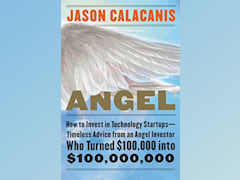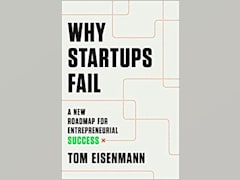
Advanced Introduction to Private Equity
This Advanced Introduction provides an illustrative guide to private equity, integrating insights from academic research with examples to derive practical recommendations. Paul Gompers and Steven Kaplan begin by reviewing the history of private equity then exploring the evidence on performance of private equity investments at both the portfolio company level and fund level, documenting the creation of economic value. The book then presents a set of actionable frameworks for driving value creation in private equity investments. It concludes by examining how private equity investors raise funds and how they successfully manage their private equity firms.

Angel: How to Invest in Technology Startups—Timeless Advice from an Angel Investor Who Turned $100,000 into $100,000,000
One of Silicon Valley’s most successful angel investors shares his rules for investing in startups.
There are two ways to make money in startups: create something valuable—or invest in the people that are creating valuable things.
Over the past twenty-five years, Jason Calacanis has made a fortune investing in creators, spotting and helping build and fund a number of successful technology startups—investments that have earned him tens of millions of dollars. Now, in this enlightening guide that is sure to become the bible for twenty-first century investors, Calacanis takes potential angels step-by-step through his proven method of creating massive wealth: startups.
As Calacanis makes clear, you can get rich—even if you came from humble beginnings (his dad was a bartender, his mom a nurse), didn’t go to the right schools, and weren’t a top student. The trick is learning how angel investors think. Calacanis takes you inside the minds of these successful moneymen, helping you understand how they prioritize and make the decisions that have resulted in phenomenal profits. He guides you step by step through the process, revealing how leading investors evaluate new ventures, calculating the risks and rewards, and explains how the best startups leverage relationships with angel investors for the best results.
Whether you’re an aspiring investor or a budding entrepreneur, Angel will inspire and educate you on all the ins of outs. Buckle up for a wild ride into the world of angel investing!

Private Equity: A Casebook
"Private Equity" is an advanced corporate finance book that integrates a range of topics from a private equity investor’s perspective. The book presents a set of cases used in the Private Equity Finance class, an advanced elective course offered in the Harvard Business School MBA elective curriculum. The structure of the book follows the timeline of a typical investment. Starting with deal sourcing, due diligence and valuation, followed by execution of the transaction, including issues related to capital structure and governance, the book transitions to examining operational changes and management of the capital structure, closing with a set of cases related to exit. Intended for readers interested in working for private equity firms, investing in private equity as limited partners or providing investment banking or consulting services to private equity firms, "Private Equity" is also appropriate for readers who are interested in a more detailed exploration of corporate finance.

Venture Capital and Private Equity: Understand all about VC and PE Funds, Investments, and Decision Making
Ever wondered how Venture Capital (VC) and Private Equity (PE) funds make investments? Or how they structure those investments? Or how they arrive at a valuation? What their fees are, or where they even get their money?This book analyzes key aspects of VC and PE funds. The book provides an overview of all key areas of VC and PE investment. Topics addressed include:
- What even are VC and PE funds?
- Common valuation methods
- Deal structuring and the term sheet
- Exiting investments
- VC and PE fund performance
- VC and PE funds’ investors and fees
This book is for anyone who wants to learn about VC and PE funds, from prospective finance professionals through to founders interacting with VC and PE investors.

Why Startups Fail: A New Roadmap for Entrepreneurial Success
Why do startups fail? That question caught Harvard Business School professor Tom Eisenmann by surprise when he realized he couldn’t answer it.
So he launched a multiyear research project to find out. In Why Startups Fail, Eisenmann reveals his findings: six distinct patterns that account for the vast majority of startup failures.
Drawing on fascinating stories of ventures that failed to fulfill their early promise—from a home-furnishings retailer to a concierge dog-walking service, from a dating app to the inventor of a sophisticated social robot, from a fashion brand to a startup deploying a vast network of charging stations for electric vehicles—Eisenmann offers frameworks for detecting when a venture is vulnerable to these patterns, along with a wealth of strategies and tactics for avoiding them.
A must-read for founders at any stage of their entrepreneurial journey,
Why Startups Fail
is not merely a guide to preventing failure but also a roadmap charting the path to startup success.
